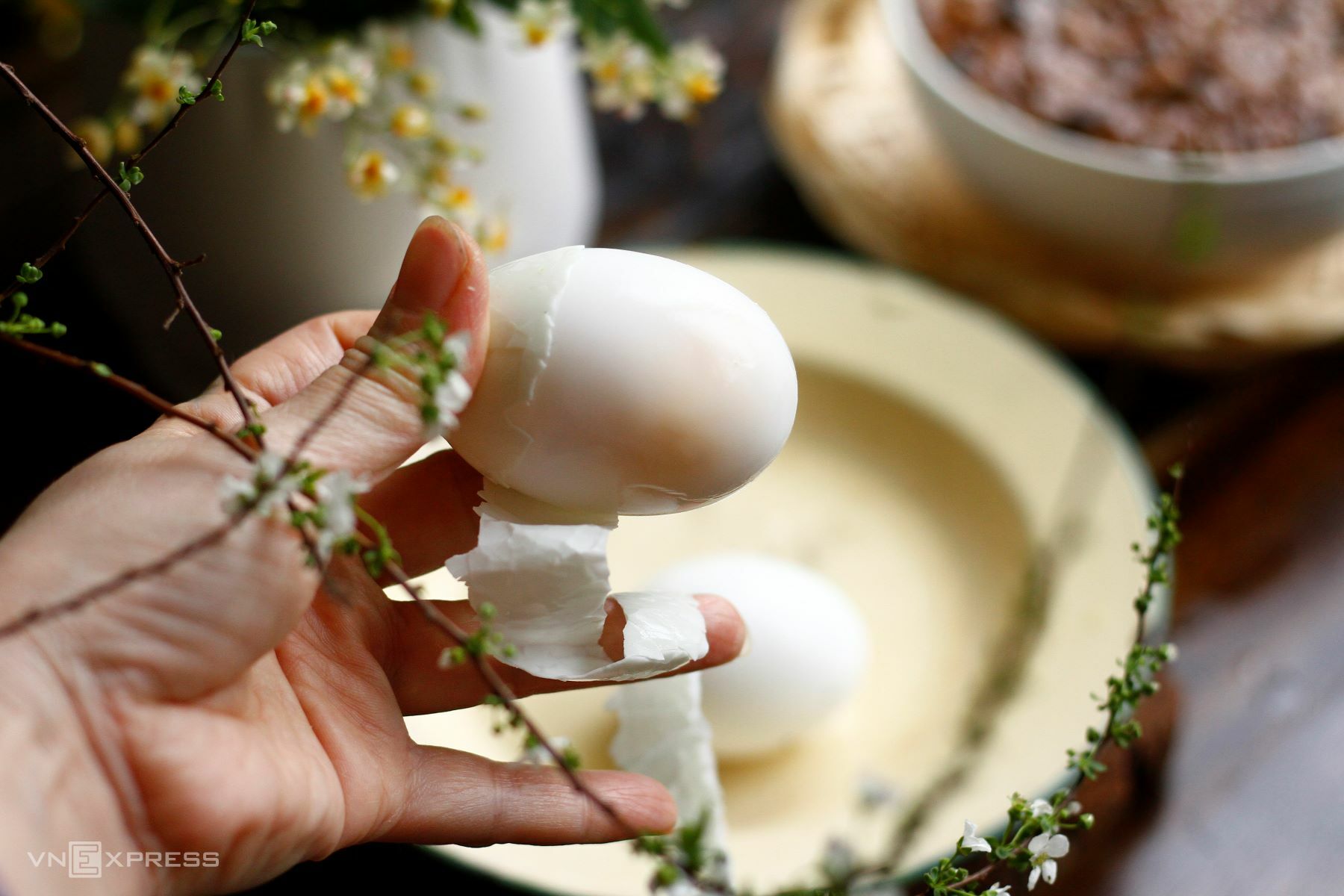Most people put eggs in cold water and then bring it to a boil.
Studies show that egg whites are primarily albumin, a protein easily denatured by heat. Gradually heating the eggs in cold water allows the protein to solidify slowly, avoiding a sudden pressure change that can crack the shells and leak the whites.
However, this method results in a longer cooking time, causing the inner membrane to stick to the white, making peeling difficult, especially with fresh eggs.
Furthermore, inaccurate timing can overcook the eggs, leading to a grayish-green or dark green ring around the yolk. This is caused by a reaction between the sulfur in the egg white and the iron in the yolk, forming iron sulfide (FeS). While harmless, it affects the appearance and flavor. That's why it's crucial to control both the cooking and cooling times.
 |
Smooth, easily peeled, perfectly cooked boiled eggs. Photo: Bui Thuy |
Smooth, easily peeled, perfectly cooked boiled eggs. Photo: Bui Thuy
Contrary to the traditional method, some modern chefs and experienced home cooks recommend waiting for the water to simmer before gently placing the eggs into the pot with a spoon.
The sudden heat shock causes the inner membrane to contract quickly, separating it from the egg white. This makes peeling easier, even for fresh eggs. Afterward, the eggs should be immediately plunged into ice water to stop the cooking process and further aid separation, facilitating easy peeling.
This method is ideal for soft-boiled eggs, salads, or when peeling a large batch quickly. However, it's not suitable for eggs straight from the refrigerator, as the drastic temperature change can cause them to crack.
Each method has its pros and cons, so choose the one that best suits your needs. For safe boiling without cracked shells or leaking whites, start with cold water. For quick and easy peeling and aesthetically pleasing yolks, gently add the eggs to simmering water and then ice them.
Here are some additional tips for perfect boiled eggs:
Freshly laid eggs tend to stick to the shell when boiled. It's best to leave them at room temperature for a few days to allow the air pocket between the shell and white to expand, making peeling easier. Maintain a consistent, medium heat while boiling to avoid cracking. Adding a little salt or white vinegar can also prevent cracking and leakage.
For a perfectly centered yolk, gently stir the water after adding the eggs.
Adjust the cooking time according to your preference. For soft-boiled eggs, 5-6 minutes is sufficient. For hard-boiled eggs, 8-10 minutes is enough; avoid overcooking.
After boiling, immediately transfer the eggs to a bowl of ice water or run them under cold water. This stops the residual cooking, prevents the grayish-green ring around the yolk, and helps the membrane contract for easier peeling. Once cooled, roll the eggs on a flat surface or shake them gently in a bowl of water to create cracks, allowing water to seep between the shell and membrane, ensuring clean, damage-free peeling.
Bui Thuy












